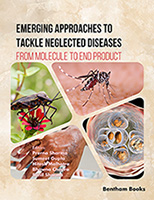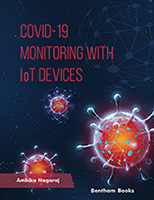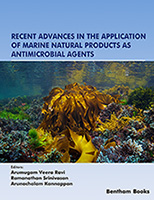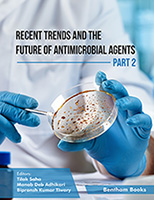Bacteria, viruses, fungi, protozoa, or parasites are the causative agents for various infectious diseases and are responsible for morbidity and mortality at large scale worldwide. Although remarkable accomplishments have been achieved in recent years in developing new anti-infectives, the widespread emergence of drug resistance has been the main obstacle and continues to provide a strong stimulus to develop new strategies in drug design and discovery. For instance, despite the exuberant therapeutic success of antibiotics, acute infections are still responsible for 25% of deaths worldwide, killing around 17 million people per year. Apart from de novo drug discovery, the re-positioning, and re-engineering of existing drugs or drug-like molecules with known pharmacokinetics and established target profiles have now become ideal starting points for identifying new chemical entities as new anti-infectives. The quantum of research in this field has shown a tremendous increase in recent years and thus keeping oneself abr/east of recent developments is rather challenging.
The book series “Frontiers in Anti-infective Agents” is aimed to update the scientific community on recent accomplishments and provide critical commentaries on the most exciting developments in the field of anti-infectives. The present volume 5 of the series has six comprehensive reviews, contributed by leading practitioners in these fields. These reviews broadly cover the clinical use of Vikut® for chronic and non-chronic wounds, drug delivery systems for ocular drug targeting, aspects of vaccination against SARS-CoV virus categories, nanotechnological interventions for the diagnosis and treatment of infectious diseases, repurposing and re-engineering of various drugs for targeting SARS-CoV-2 and a bilayer tablet approach for the treatment of sexually transmitted diseases.
The 1st chapter by Durgun et al. explicates ocular drug targeting as one of the most challenging research areas because of the presence of natural barriers of the eye. It discusses in detail the various drug delivery systems approved by USFDA for the treatment of ocular infections wherein the bioavailability is enhanced using micro and nano-carriers. The 2nd chapter by Rani et al. includes the various aspects of vaccination, its importance in the current scenario, and methods of implementation specifically targeting SARS-CoV virus categories.
The 3rd chapter by Lara-Esqueda et al. describes the healing properties of each of the components of Vikut® and the results of its use in the clinical case obtained by healthcare professionals in the treatment of both chronic and non-chronic wounds. Sonia Sethi discussed the nanotechnological interventions for the diagnosis and treatment of infectious diseases, particularly resistant to conventional antibiotics, in the 4th chapter. In particular, the use of nanomaterials with intrinsic anti-infective properties as carriers for targeted and site-specific delivery of potential drugs is discussed in detail.
Mohan and Venugopal, in the 5th chapter, highlight the successful repurposing and re-engineering of various drugs for assessing their activities on SARS-CoV-2 and are in various phases of clinical trials. A particular emphasis was given on protease inhibitors, polymerase inhibitors, antimalarial drugs, rheumatoid drugs, and lipid-lowering statins with promising SARS-CoV-2 activities. The 6th chapter by Gaikwad and Patil delineats a bilayer tablet approach for the treatment of sexually transmitted diseases. The combination of Cefixime and ofloxacin was employed to prepare the bilayered tablets to maintain the peak plasma level of the drug.
We are indeed grateful to all the authors of the above-cited articles for their excellent contributions and hope that these contributions will help readers in gaining a better understanding of this field. We would also like to express our gratitude to the entire team of Bentham Science Publishers, particularly Ms. Fariya Zulfiqar (Manager Publications), and Mr. Mahmood Alam (Editorial Director), for the timely production of the 5th volume.
Parvesh Singh
School of Chemistry and Physics
University of Kwa-Zulu Natal (UKZN)
Westville campus, Durban
South Africa
Vipan Kumar
Department of Chemistry
Guru Nanak Dev University
Amritsar
India
&
Rajshekhar Karpoormath
Department of Pharmaceutical Chemistry
University of Kwa-Zulu Natal (UKZN)
Westville Campus, Durban
South Africa





